“It’s all about paying homage,” remarks Oliver at the end of my favourite novel, Oliver’s Travels (1994), “Hearing what the ghosts are saying.” This blissful romantic thriller about national corruption pays homage to many people – from Jimmy James to Ludwig van Beethoven, from Lester Young to the stone masons who build Durham Cathedral, from George Farquhar to Magnus the Martyr. It also demonstrated that if the late, great Alan Plater wrote all our dialogue, then the world would be a better place to live.
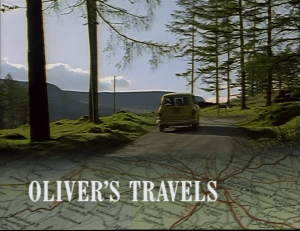
Fig 1: The BBC TV version of the novel… [i]
The first person that I was able to say a proper ‘Thank You’ to was J Jeremy Bentham. It was his work with the Reference Department of the Doctor Who Appreciation Society that captured my imagination when I first joined in 1976. Synopses sheets with cast lists and transmission details, Story Information (StInfo) Files giving breakdowns to serials from the 1960s which I was pretty sure I would never get to see, lavish publications cataloguing the Doctor’s friends and foes across the show’s long-running 13 years on air… all printed on that slightly shiny duplicating paper so beloved of the decade at 6p a go.
I was able to say ‘Thank You’ to Jeremy one Saturday afternoon in February 1982 when – true to his philanthropic nature – he travelled to the frozen North to share some of the delights from his collection of historical TV shows with us youngsters. He’s been a good friend ever since; the work which I have undertaken for Doctor Who Magazine since 1988 is in fact a continuation of what he initiated in 1979. And in recent years, I’ve been able to celebrate his achievements within that title – notably his ground-breaking volume Doctor Who: The Early Years (1986).
Yes – I know. This blog seems as if it’s all about Doctor Who yet again. Hardly a proportional representation for television history – but so many academics, historians, librarians and writers have enthusiastically informed me that their fascination in their given field was ignited by their fandom for the BBC’s adventures in space and time, and I think I have to acknowledge its disproportionate influence in what we do.
But let’s leave the Time Lord behind, and in fact dip out of television altogether for a paragraph or two while I recount my next ‘Thank You’. For my birthday in 1978, my parents gave The Goon Show Companion (1976) – a paperback guide to the bizarre comedy offering of the 1950s which had captured my young imagination through script books, LP releases and Radio 4 re-runs. The author was Roger Wilmut, and his passionate overview of the series’ history was followed up by appendices crammed with technical talk as he catalogued the eccentric chronology of The Goon Show in its many forms. Not just the episode titles [iii], but recording dates, tape numbers, scheduling discrepancies, alternate versions and anomalies so strange that even Spike Milligan couldn’t have thought them up to have written into his scripts for the show in the first place. I didn’t even realise such data existed… and I wanted to find more of it for the other series that I adored…
My ‘Thank You’ to Roger took a bit longer to deliver than the one to Jeremy… and should really have come sooner. In 2006, I was researching my book The Goodies: Super Chaps Three (2010) and dropped him a line via his website to query some aspects of the series Twice a Fortnight (1967) which he had touched upon in his wonderful volume From Fringe to Flying Circus (1980). Although unable to help with the specifics, Roger sent a lovely little reply back. His ‘best of luck with your endeavours’ sign-off meant an awful lot to me.
Fast forward to December 2019, and a happy coincidence allowed me my third, long over-due ‘Thank You’. My old friend Anthony McKay recently saw his wonderful article about the production of the movie Children of the Damned (1964) published in the long-running horror zine Little Shoppe of Horrors (1972-). Having polished off his fascinating piece, I was then very taken with an article about the horror film fan mag The Monster Times (1972-1976) in which LSOH editor Richard Klemensen had spoken to several of that title’s contributors, including Gary Gerani…
Gary Gerani! The missing part of the puzzle! Back in 1977, my obscure little local British library acquired – how, goodness only knows – a copy of the highly-specialized American volume Fantastic Television (1977). And I borrowed that book so often, people must have thought I owned it. Pages and pages of photo-packed episode guides with title, writer, director, guest cast and synopses explaining to me the correct sequences for shows I’d seen like Star Trek (1966-1969) and making my mouth water for other titles that I’d not yet experienced like kolchak: the night stalker (1974-1975). I still see the page layouts in my mind’s eye – despite the fact that here in The Future all of the sixteen shows chronicled in detail and many of those dealt with in haste are now available to me on shiny discs.
Quick e-mail to Richard. Quick e-mail for Richard to pass to Gary. And such a lovely e-mail from Gary – a successful author, editor and screenwriter – back just a few days before Christmas. ‘I am so touched!’ he wrote, ‘That my book could have inspired a bright young enthusiast like yourself to pursue these interests professionally is the greatest personal reward I can receive […] I just wanted to tell you how good your email made me feel.’
It may have been 42 years late. But 42 years ago, I don’t think my ‘Thank You’ would have been as big or as heart-felt.
And while the homages paid in Oliver’s Travels are largely posthumous, I count myself very fortunate in being able to pay my tributes directly to the three people whose work launched me into decades of happy opportunities.
And now, I’ve been able to say ‘Thank You’ again.
Thank You.
Andrew Pixley is a retired data developer. For the last 30 years he’s written about almost anything to do with television if people will pay him – and occasionally when they won’t. He did eventually manage to buy his own copy of Fantastic Television when a British edition finally appeared. And he still loves it to bits.
Notes:
[i] … which Alan Plater really didn’t like. I love it, and so this was a bit of a shock to discover. There were various issues with production that – quite rightly – didn’t sit well with him. Regardless, I still love the TV serial… but I love the novel even more.
[ii] Still not enough…
[iii] A minefield in themselves…


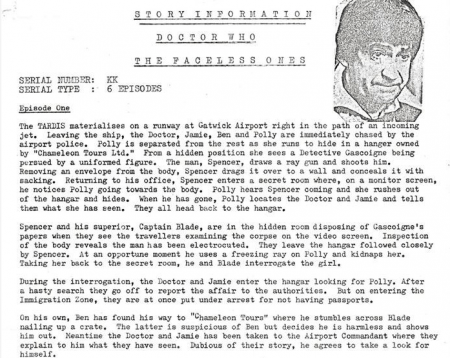
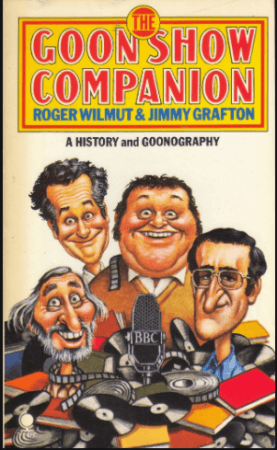
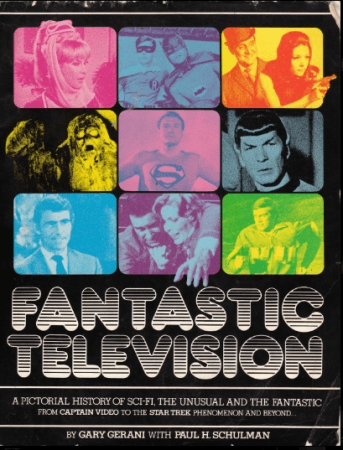
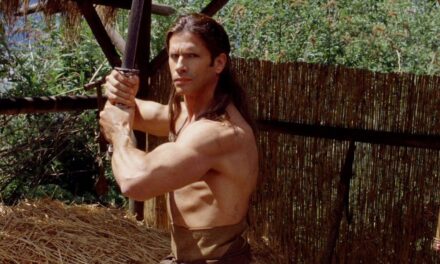
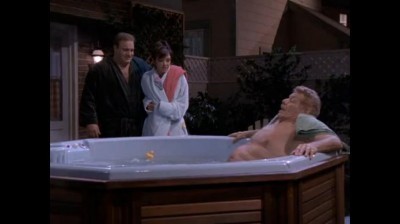

Great piece Andrew, so lovely to read your homage to the writers who influenced you most.
Bless you Lee. I’m well aware that I’d not have had the opportunities to do what I have done unless these three people had inspired me. I have a lot of respect for them, and I hope that other people will also admire and be inspired by their work – and hopefully have as much fun writing about television to celebrate these shows as I’ve been fortunate enough to enjoy.
Thank you for taking the time to post your kind comment.
All the best
Andrew